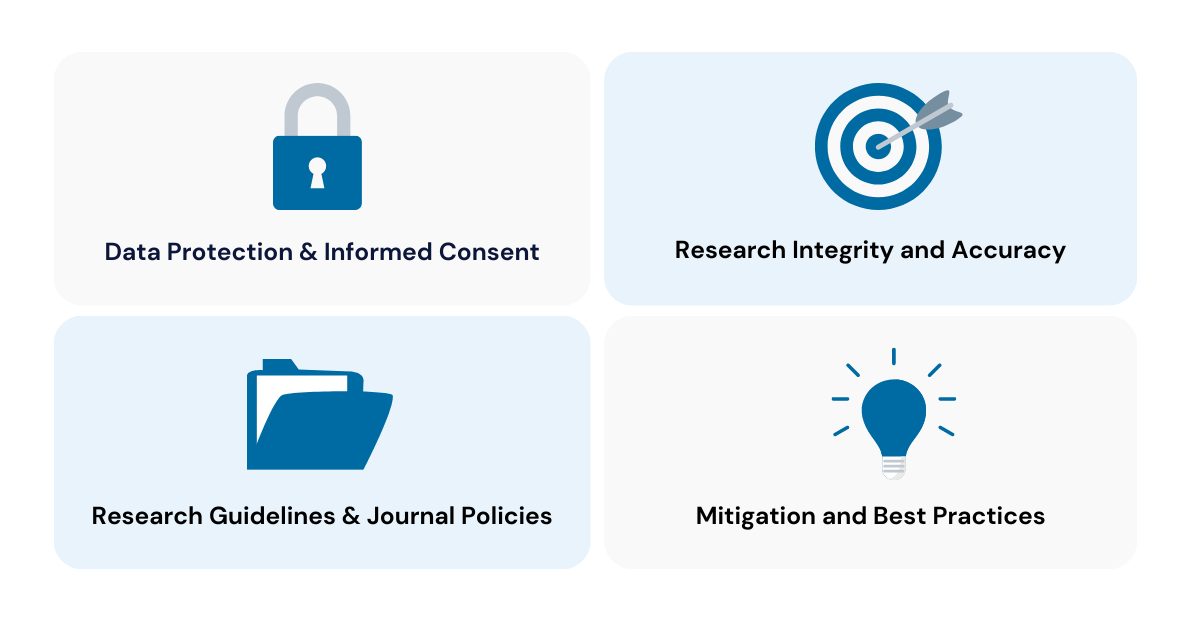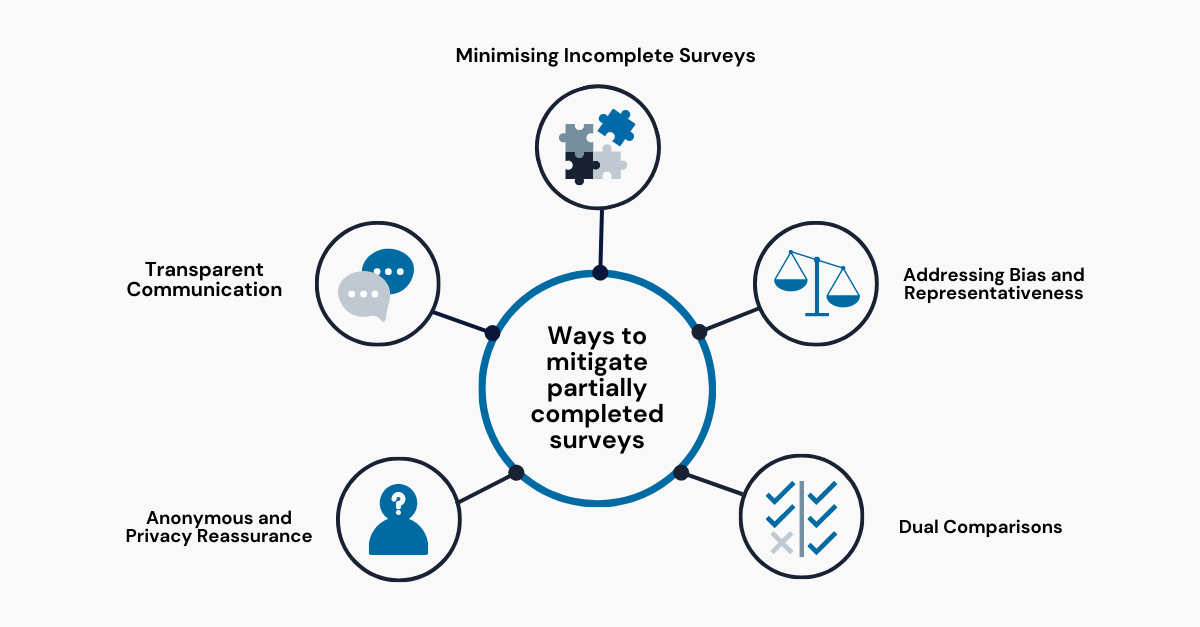In the world of data analysis, surveys are a great tool for community engagement teams to gather feedback and insights from their community. However, if surveys are only partly filled out or contain unanswered questions from respondents, it can raise legal and ethical concerns that may influence and impact stakeholder engagement.
Let’s imagine a scenario where a local government conducts a survey for new park amenities, but many responses are partially completed, with important questions left unanswered.
The organisation then faces the dilemma of whether to include incomplete data for broader views or to prioritise accurate insights from fully completed surveys. This situation highlights the challenge of balancing inclusivity with data accuracy in stakeholder engagement decisions.
In this article, we’ll delve into the legality and ethics of incorporating partially completed surveys in data analysis, and examine how this can influence stakeholder engagement.

How partially completed surveys impact community engagement
Partially completed surveys can have a significant impact on stakeholder engagement, affecting the quality and reliability of collected data. So, let’s explore four critical aspects that need to be considered:
- Data Protection and Informed Consent
- Research Integrity and Accuracy
- Research Guidelines and Journal Policies
- Mitigation and Best Practices
Data Protection and Informed Consent
Within the realm of data protection and informed consent, various ethical considerations must be taken into account to guarantee meaningful stakeholder engagement.
For example, it’s crucial to follow legal regulations like the General Data Protection Regulation (GDPR) in Europe and the Privacy Act 1988 in Australia. These rules are designed to safeguard participants’ data in those specific regions. Organisations that do not adhere to these frameworks may face legal issues, erode trust, and can cause damage to their reputation.
You see, when it comes to partially filled surveys, concerns may arise regarding the authenticity of consent. Participants might not have anticipated how their incomplete data would be utilised, which potentially compromises the transparency and trust for stakeholder engagement.
Research Integrity and Accuracy
Ethically, the inclusion of incomplete surveys has the potential to compromise the integrity of research findings. When partial data is incorporated, it introduces the possibility of distorting the analysis process and subsequently yielding inaccurate conclusions.
This scenario not only holds the potential to mislead decision-makers but also has broader implications for the general public’s understanding of the subject matter. Maintaining the ethical standards of research demands a commitment to utilising complete and accurate data, thereby preserving the reliability and credibility of the findings.
Research Guidelines and Journal Policies
Reputable research journals and journal policies follow strict protocols for data collection and analysis. So, integrating partially completed surveys into these standards could also lead to potential conflicts.
For instance, research papers that include such data may encounter rejection or even retraction due to organisations not following established guidelines. Therefore, finding the balance between involving stakeholders thoroughly and meeting strict research standards can end up being a difficult task.
Integrating partial surveys presents the conflict of trying to meet research standards while remaining engaged with stakeholders to ensure they have a voice. This balance between inclusivity and adherence to journal policies poses a dilemma for researchers, requiring them to strategise transparent reporting, additional analysis, or seeking more data to ensure research credibility and acceptance.

Mitigation and Best Practices
So, what steps can be taken to help mitigate the risk and ensure best practices when considering the inclusion of partially completed surveys in your findings? Let’s explore five ways below:
- Minimising Incomplete Surveys
- Transparent Communication
- Anonymous and Privacy Reassurance
- Addressing Bias and Representativeness
- Dual Comparisons
1. Minimising Incomplete Surveys: Designing surveys with care and providing a user-friendly experience can help reduce the occurrence of incomplete responses. In addition, offering clear instructions and reminders to participants can further enhance data completeness.
2. Transparent Communication: Communicating upfront with participants about the inclusion of incomplete data is crucial. Transparency should extend to reporting, where the usage of such data is explicitly stated.
3. Anonymous and Privacy Reassurance: Reassuring participants about the confidentiality of their data is pivotal for fostering trust. This can encourage more honest and candid responses, ultimately leading to more accurate insights.
4. Addressing Bias and Representativeness: Being mindful of potential bias introduced by incomplete responses is essential for accurate stakeholder representation. Implementing strategies like stratified sampling or weighting can help mitigate these biases and ensure a more comprehensive view of your target population.
5. Dual Comparisons: You could also provide dual comparisons that include one with the complete dataset (including partial responses) and another with only complete responses. This dual comparison strategy not only enhances transparency but also assists stakeholders in better understanding how the presence of partially completed surveys can influence the outcomes that are being examined.
The use of partially completed surveys in data analysis is a complex topic, both from a legal and ethical standpoint. Researchers worldwide, including those in Australia, must prioritise data protection, research integrity, and transparency. Adhering to informed consent practices and handling personal information in accordance with privacy laws is essential.
Moreover, obtaining ethical approval and adhering to research guidelines ensure the validity of research outcomes. By incorporating best practices and maintaining ethical standards, researchers can enhance the credibility and impact of their findings, ultimately contributing to the advancement of knowledge in their respective fields.




